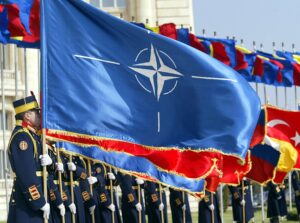
Why NATO Is More Than Democracy’s Best Defense
On its 75th anniversary, the Atlantic Alliance should be celebrated for being more than the world’s greatest military compact. It’s an engine of democracy’s advance.

On its 75th anniversary, the Atlantic Alliance should be celebrated for being more than the world’s greatest military compact. It’s an engine of democracy’s advance.

The Russian autocrat wanted to go down in history on par with Russia’s greatest leaders. He is increasingly looking like one of its weakest.
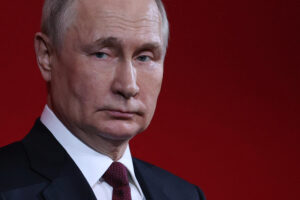
For twenty years, the Russian autocrat enjoyed a string of good fortune in coming to power and cementing his rule. He had raised Russia’s standing in the world. Then he invaded Ukraine.
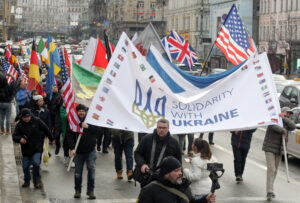

April 2022, Volume 33, Issue 2
Forget his excuses. Russia’s autocrat doesn’t worry about NATO. What terrifies him is the prospect of a flourishing Ukrainian democracy.

Forget his excuses. Russia’s autocrat doesn’t worry about NATO. What terrifies him is the prospect of a flourishing Ukrainian democracy.
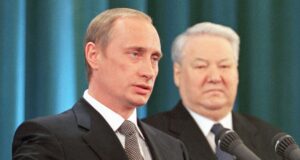

October 2021, Volume 32, Issue 4
Thirty years after the Soviet Union collapsed, Russia is firmly in the grip of an autocrat. Where did Russia’s path go wrong?
January 2008, Volume 19, Issue 1
The program of carefully controlled reform-from-above that King Mohamed VI began almost a decade ago may now have reached an impasse amid signs of growing disaffection.
April 2007, Volume 18, Issue 2
A review of Electing to Fight: Why Emerging Democracies Go to War by Edward D. Mansfield and Jack Snyder
October 2005, Volume 16, Issue 4
Basic demographic and socioeconomic factors in Iran are favorable to democratization. The mullahs may hope to stave off democratic change by emulating the Chinese model, but this strategy is doomed to fail.

July 2005, Volume 16, Issue 3
The years since 2000 have seen a surprising new wave of democratic breakthroughs in postcommunist lands as varied as Serbia, Georgia, and Ukraine. Can we identify any factors common to each case?
July 2004, Volume 15, Issue 3
President Vladimir Putin's lopsided election victory was assisted by an unlevel electoral playing field, but elections still matter in Russia and they will make more difficult the consolidation of authoritarianism.
January 2002, Volume 13, Issue 1
A review of Afghanistan’s Endless War: State Failure, Regional Politics, and the Rise of the Taliban by Larry P. Goodson; and Taliban: Militant Islam, Oil, and Fundamentalism in Central Asia, by Ahmed Rashid.
October 2001, Volume 12, Issue 4
Despite huge changes, the events of the last ten years raise doubts about the notion of “democratic transition” itself.
July 2000, Volume 11, Issue 3
Does the election of Vladimir Putin as Russia’s president represent a fundamental turn away from democracy or merely a temporary setback? Although Putin’s apparent indifference to democracy is worrisome, it would be premature to conclude that democracy is lost in Russia.
April 1999, Volume 10, Issue 2

Drawn from outstanding articles published in the Journal of Democracy, The Global Divergence of Democracies follows the enthusiastically received earlier volume, The Global Resurgence of Democracy.
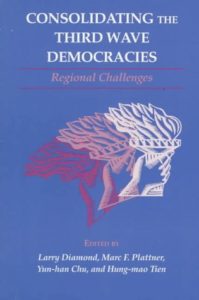
The global trend that Samuel P. Huntington has dubbed the "third wave" of democratization has seen more than 60 countries experience democratic transitions since 1974. While these countries have succeeded in bringing down authoritarian regimes and replacing them with freely elected governments, few of them can as yet be considered stable democracies.
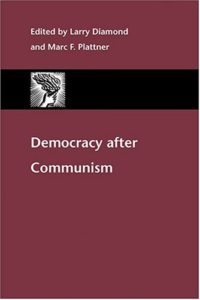
Is the challenge of building and consolidating democracy under postcommunist conditions unique, or can one apply lessons learned from other new democracies? The essays collected in this volume explore these questions, while tracing how the countries of Eastern Europe and the former Soviet Union have fared in the decade following the fall of communism.
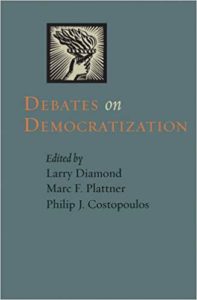
If democracy means anything, it means robust debates. Debates on Democratization is a collection of essays that explores the questions and controversies that surround contemporary democratization.
